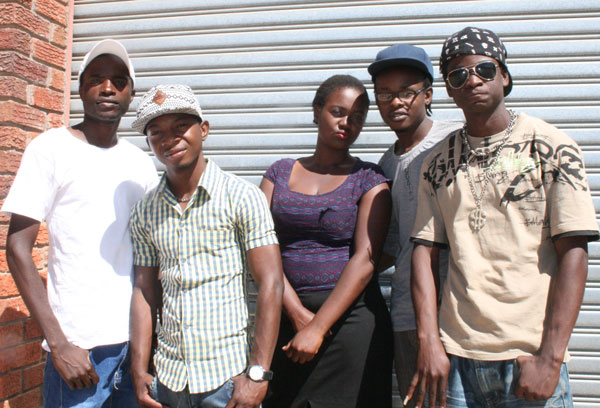
Trevor Dongo, ExQ, Stunner and Sani Makhalima are some of the revered names that have been associated with the stonewashed urban grooves phenomenon that stretched for almost a decade since the early 2000s.
By Kennedy Nyavaya
The sound which initiated a more localised rhythm of western music abruptly lost sheen and its remnants have only persisted and secured relevance by resorting to more defined genres.

Ngoma Huru, an Epworth movement, believes it is a mystic force sent to resurrect the urban grooves culture phenomenon over again.
The nine-member group, which was started at the beginning of the year by the Epworth trio of Crispen “MC Afrika” Charamba, Wilmos “Wicie” Chimhepo and Dj Miles, recently released a 14-track compilation album titled Urban Grooves Rebirth.
In an interview with The Standard Style, the Great Hit Records recording artists MC Afrika and Wicie said they drew inspiration from music they grew up listening to and feel the need to revive and celebrate it.
“We just think that it has been swept off for a very long time and a lot of people are sidelining it but we feel that it’s good music so we thought of resurrecting what people deem defunct,” said MC Afrika.
“It was good music, decent and it had a lot of followers and we used to bump into artists and they were like the flavour of that time, so we need to celebrate their music,” he said.
- Chamisa under fire over US$120K donation
- Mavhunga puts DeMbare into Chibuku quarterfinals
- Pension funds bet on Cabora Bassa oilfields
- Councils defy govt fire tender directive
Keep Reading
Wicie, whose solitary attempt to launch an album in 2008 crashed, said urban grooves was not a single genre, but rather a culture adopted by urbanites which was best expressed through blending.
“Urban grooves consists of different genres, you can find dancehall, jazz, R‘n’B and many more. It is a fusion so it appeals to everyone,” said Wicie.
The clone idea is, however, not entirely new as there were other similar groups like the once famed Chamhembe, a yesteryear consortium of urban groovers.
MC Afrika revealed that they had learned from mistakes of past groups and would capitalise on their findings to make their brand sustainable by avoiding falling into the same traps.
“We are not going to fade and although it might appear corny, we are here to right the wrongs as we actually looked at them and learnt something to successfully perpetuate what they left unfinished,” he said.
The 23-year-old singer added that their vision revolved around giving young artists from sidelined areas a chance to nature their promising careers.
“We really have passion for this and we just think that music has to bring people together regardless of our social standing whether you are from the ghetto or uptown,” he said.
Wicie conceded: “In Ngoma Huru, each and every artist is independent to work on their own on personal projects, but we are trying to promote unity in the industry so that it can grow.”
While their immediate goal is to gain local recognition, the major dream is to conquer the continent and perhaps the world.
“We might cross the borders later on but as for now, we want to be relevant in our country and we know that people are hungry and thirsty for this kind of sound,” said MC Afrika.











